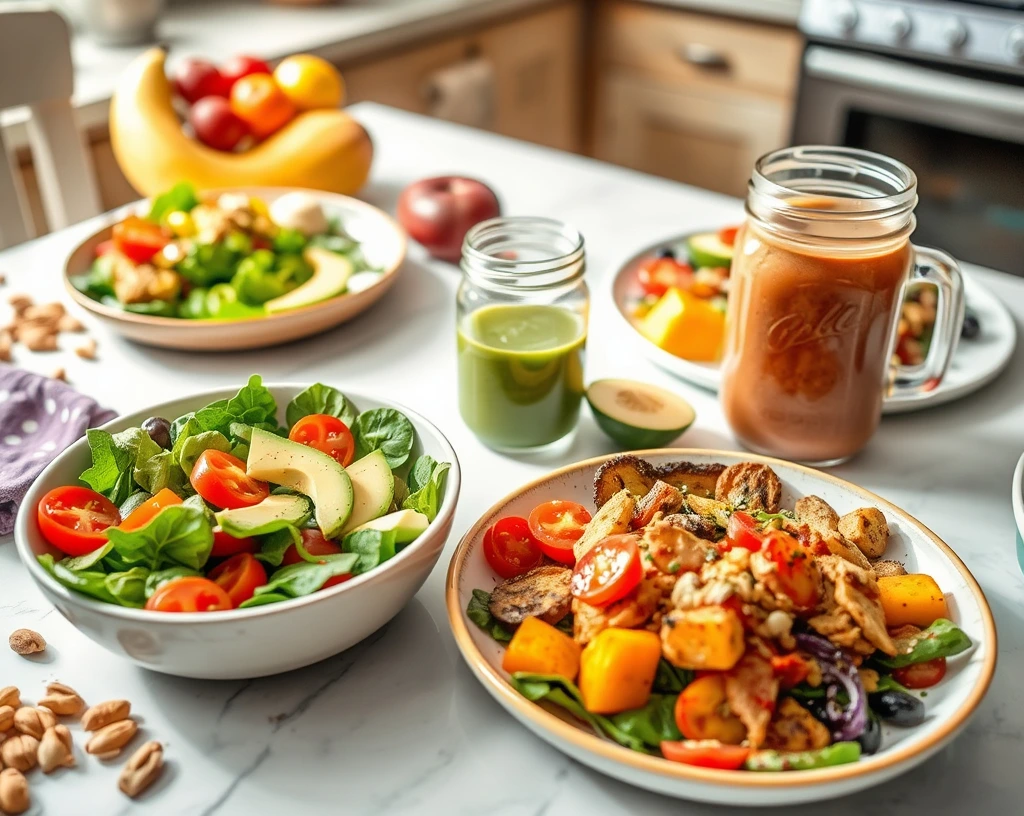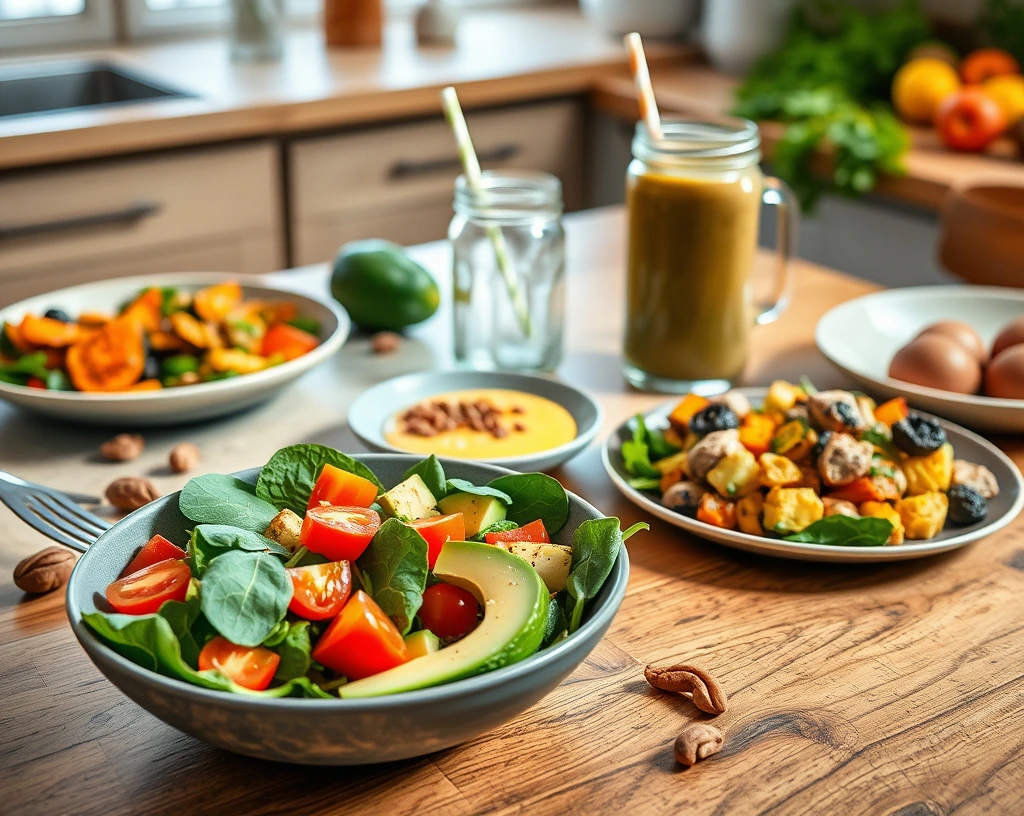What is the Most Basic Vegan Diet? A Simple Guide to Healthy Plant-Based Eating
A vegan diet might sound complex at first, but the most basic vegan diet is all about simplicity, health, and sustainability. By focusing on unprocessed, plant-based foods, you can nourish your body while reducing your environmental impact. This article will walk you through everything you need to know, from the fundamentals of a minimalist vegan diet to crafting a simple, nutrient-rich meal
Introduction to Vegan Diet
What is the Most Basic Vegan Diet?
A basic vegan diet centers around simplicity—consuming fruits, vegetables, grains, legumes, nuts, and seeds while avoiding processed foods and animal products. It’s an excellent choice for beginners or anyone looking to adopt a healthier lifestyle. You can discover more inspiration with these vegan dinner party recipes to elevate your plant-based journey.
Why Consider a Basic Vegan Diet?
Many people are drawn to a basic vegan diet because it aligns with their ethical beliefs, supports their health goals, or helps them reduce their environmental footprint. Here’s why it’s an excellent choice for beginners and veterans alike:
- Ethical Reasons: By avoiding animal products, you take a stand against factory farming and promote animal welfare.
- Health Benefits: A well-planned, plant-based diet can lower your risk of heart disease, diabetes, and certain cancers.
- Environmental Impact: Consuming fewer animal products helps reduce greenhouse gas emissions and conserves water resources.
Additionally, sticking to a simple vegan diet makes it easier to maintain consistency. It’s less overwhelming to prepare meals, especially if you’re new to veganism. By focusing on nutrient-dense, whole foods, you’re setting yourself up for a sustainable and rewarding lifestyle change.
Fundamentals of a Basic Vegan Diet
Core Principles of the Most Basic Vegan Diet
The most basic vegan diet is built on three key principles: whole foods, minimal processing, and balanced nutrition. Let’s dive into each one to understand why they matter and how they shape this lifestyle.
Whole, Plant-Based Foods as Staples
At its heart, this diet focuses on whole plant-based foods that provide essential nutrients. Fruits, vegetables, legumes, grains, nuts, and seeds are the stars of the show. For example:
- Fruits and vegetables offer vitamins, minerals, and antioxidants.
- Legumes like lentils, chickpeas, and black beans provide plant-based protein.
- Whole grains such as brown rice, quinoa, and oats are excellent sources of fiber and energy.
- Nuts and seeds supply healthy fats and micronutrients like zinc and magnesium.
Avoiding Processed Foods
Processed vegan alternatives might be tempting, but they often contain additives and lower nutritional value. A basic vegan diet avoids items like mock meats, vegan cheeses, and overly refined grains. Instead, it emphasizes natural, unprocessed ingredients that keep you feeling energized and nourished.
Nutrient Balance
Balancing nutrients is critical for thriving on a vegan diet. While whole foods are rich in essential vitamins and minerals, paying attention to key nutrients ensures you’re covering all your bases:
- Protein: Found in legumes, tofu, tempeh, and quinoa.
- Iron: Boosted with lentils, spinach, and fortified cereals.
- Calcium: Derived from leafy greens, fortified plant milks, and sesame seeds.
- Vitamin B12: A must-have supplement since it’s not naturally present in plant foods.
By sticking to these principles, you’ll lay a strong foundation for your vegan journey and enjoy a vibrant, nutrient-packed lifestyle.
Designing a Basic Vegan Meal Plan
How to Structure Your Basic Vegan Meals
Creating a basic vegan meal plan doesn’t require elaborate recipes or exotic ingredients. The goal is to keep it simple, nutritious, and delicious. A well-structured meal plan ensures you meet your nutritional needs without overcomplicating things.
Breakfast Ideas
Start your day with energizing and wholesome meals that are quick to prepare. Here are some simple breakfast ideas:
- Oatmeal with Fruits: Combine rolled oats with almond milk, top with bananas, berries, and a sprinkle of chia seeds.
- Avocado Toast: Spread mashed avocado on whole-grain toast, add a pinch of salt and pepper, and enjoy.
- Smoothies: Blend spinach, frozen berries, a banana, and almond milk for a nutrient-packed breakfast.
Lunch Options
For lunch, focus on meals that are satisfying and easy to prepare in advance:
- Salads: Toss leafy greens, cherry tomatoes, cucumber, chickpeas, and a drizzle of olive oil with lemon juice.
- Grain Bowls: Combine quinoa or brown rice with roasted vegetables, black beans, and a dollop of hummus.
- Simple Sandwiches: Use whole-grain bread, hummus, cucumber slices, and spinach for a quick, hearty lunch.
Dinner Dishes
Dinner can be comforting yet straightforward with these ideas:
- Stir-Fries: Sauté your favorite vegetables with tofu or tempeh, add soy sauce or tahini dressing, and serve over brown rice.
- Soups: Lentil or vegetable soup with a slice of whole-grain bread is nourishing and satisfying.
- Roasted Vegetables with Grains: Roast a mix of carrots, sweet potatoes, and zucchini, then pair them with quinoa or barley.
Snack Suggestions
Snacks can help you stay energized throughout the day. Here are some healthy and simple options:
- Fresh fruits like apples, oranges, or grapes.
- Nuts and seeds, such as almonds or sunflower seeds, for quick, nutrient-dense munchies.
- Homemade energy balls made with dates, oats, and cocoa powder.
By structuring your meals this way, you ensure a balance of macronutrients and keep your diet enjoyable and varied. Plus, you’ll never feel overwhelmed by meal prep again!
Benefits of Following a Basic Vegan Diet
Health Benefits of a Basic Vegan Diet
Switching to a basic vegan diet offers a wealth of health advantages. When you prioritize whole, plant-based foods, you’re nourishing your body with vitamins, minerals, and antioxidants that promote overall well-being.
Improved Digestion
A diet rich in fruits, vegetables, and whole grains provides ample dietary fiber, which supports gut health. Fiber aids digestion, prevents constipation, and promotes a healthy microbiome. For example:
- Apples, pears, and berries are great for a fiber boost.
- Lentils and black beans are excellent sources of both soluble and insoluble fiber.
Lowered Risk of Chronic Diseases
Studies have shown that a well-planned plant-based diet can reduce the risk of heart disease, type 2 diabetes, and certain cancers. Whole foods like leafy greens, nuts, and seeds help lower cholesterol levels and improve heart health.
Weight Management
The most basic vegan diet is naturally low in calorie-dense foods while being rich in fiber, which helps you feel full for longer. This makes it an effective way to manage weight without feeling deprived.
Environmental and Ethical Benefits
Following a basic vegan diet doesn’t just benefit your health—it’s a powerful way to contribute to a healthier planet and support ethical living.
Reducing Carbon Footprint
Animal agriculture is a significant contributor to greenhouse gas emissions. By focusing on plant-based foods, you significantly lower your carbon footprint. For example, lentils and beans have a fraction of the environmental impact of animal-based proteins.
Learn more about the environmental impact of veganism from the World Resources Institute!
Promoting Animal Welfare
By avoiding animal products, you take a stand against industries that prioritize profits over the well-being of animals. Every meal you prepare on a basic vegan diet contributes to a more compassionate world.
Adopting a basic vegan diet is a win-win—it nurtures your body while making a positive impact on the world around you. Whether it’s for health, the environment, or ethics, the benefits are hard to ignore.


